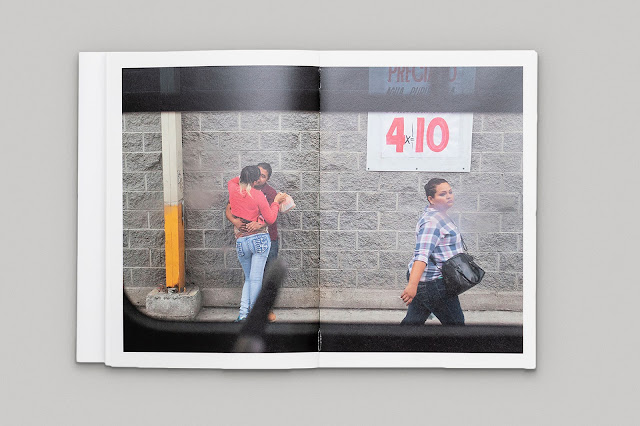 |
Suburban Bus. By Alejandro Cartagena.
|
Photographs by Alejandro Cartagena
The Velvet Cell, 2021.
By this point, you’ve been wiping the sleep from your eyes for some time, but it lingers despite the cool fluorescence of the bathroom lights and the water splashed onto your face. It lingers as you are greeted by air that belongs to neither morning nor night. Indeed, you’re only certain that it’s morning due to the unrelenting alarm clock. You amble to the bus stop anyway. You join the small gathering of passengers illuminated by the red-orange glow of streetlights, forming a hesitant pilgrimage — your steps reluctant but dutiful. You, alongside the other passengers, carry the few items that might help them through the day to come: bagged lunches, small backpacks, umbrellas.
It’s still dark but the bus is busy, and it will be for the rest of the way. People lift their backpacks over their heads just to squeeze through the bus’ doors when their stop finally comes. Those who boarded the bus early enough to claim a seat have fallen back into the sleep that has remained on their eyelids since waking. They trust themselves, though, as they always do, to wake up when their stop comes — the mark of persistent routine.
Or maybe, as Alejandro Cartagena might figure it, this is the mark of half-sleep crammed into the only sliver of the day that can accommodate it. In Cartagena’s Suburban Bus you sit alongside half-asleep passengers, frozen in time with their heads tilted and jaws slackened. The pages of Suburban Bus turn with the form of poetic enactment, composing a sequence that simulates the course of one day on just one of the bus’ many commutes. Over the course of the 300+ pages that comprise this beautiful, expansive exploration of a claustrophobic space, you are like a passenger, an observer of routine.
 |
 |
This particular bus connects the cities of Juárez and Monterrey, Mexico. Inside it, Ximena Peredo remarks in her accompanying essay, “we find a type of captivity, of wasted (literally) time, of seeing oneself reflected in this family of exhausted bodies, crushed from their waking at dawn, of getting in each other’s way, squeezing in tighter still to allow someone else on, to finally pushing one’s way through to get off all these bodies melting together like an unavoidable morning ritual.”
“Traveling in these precarious capsules,” Peredo continues, “without enough seats for everyone, in a total absence of safety, is a confirmation of the position these bodies occupy in the consumption society.” This positioning reflects a thematic concern of both this book and the others of Cartagena’s that it echoes, including Suburbia Mexicana (2011) and A small guide to Homeownership (2020) — namely, the tension between compression and expansion in urbanizing Mexico as it impacts the working class. As the urban environment traversed by the bus sprawls outward, and lurches upward, in the form of cookie-cutter housing developments, the spaces its population occupies are ever-diminishing. Its numbers steadily grow, its bus fleet, according to Peredo, gets steadily cut. Against this backdrop, photographs of the hands of passengers reaching directly up to the ceiling of the bus to steady themselves testify to a landscape built for humans but not humanity. Almost everyone seems exhausted.
Cartagena dedicates this work “For my family,” and that italicized clarity means to include everyone pictured in the book. He rode the route for years before he ever began to photograph it. When he did, the photographs came to transmit the sincerity borne of his singular familiarity with the contexts in which they were made — the artist is part of the family, and his images reflect that. His photographs simultaneously revere his subjects and decry the social and political circumstances that surround them: dehumanizing as these morning rituals are, he loves his family for undertaking them anyway, for their resolve to get to wherever it is they are going, day after day.
Purchase Book
Read More Book Reviews
 |
 |
 |
 Zach Stieneker holds a BA in English and Spanish from Emory University. Following graduation, he spent several months continuing his study of photography in Buenos Aires, Argentina.
Zach Stieneker holds a BA in English and Spanish from Emory University. Following graduation, he spent several months continuing his study of photography in Buenos Aires, Argentina.









